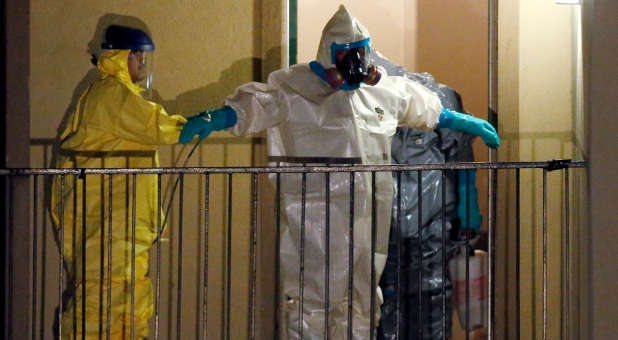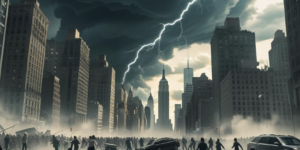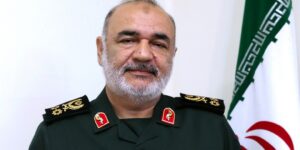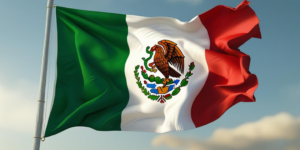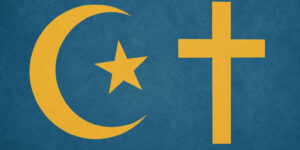Government Uses Ebola Scare to Steal American Freedoms
For much of the summer, the Ebola epidemic seemed like a far-away problem without much threat here at home.
But now, a Liberian man who flew to Texas to visit family has been diagnosed with the deadly disease, and fears have escalated.
The first instinct is to protect Americans from the disease, but in doing so, their personal freedoms and rights may be compromised, says Twila Brase, president and co-founder of Citizens’ Council for Health Freedom, a Minnesota-based national organization dedicated to preserving patient-centered health care and protecting patient and privacy rights.
“While we want to do everything possible to control this disease,” Brase said, “it’s a violation of Americans’ rights to require them, for example, to submit blood samples if they aren’t exhibiting any symptoms. States have many hidden powers, and most residents don’t even know the power the government has over them. These powers have greatly impacted at least one woman and her family in Dallas. How could they impact the rest of us?”
According to The New York Times, the 42-year-old man who flew to Texas had helped transport a pregnant woman with Ebola to a hospital in Liberia, where she was turned away. After traveling to the U.S., the man sought treatment at a Texas hospital on Sept. 25 when he began feeling ill, but was given antibiotics and sent home, even though he told medical staff he had recently visited West Africa. He returned to the hospital a few days later—much sicker.
Now, health officials are monitoring at least 50 people who have come in direct or indirect contact with the man. Four of his close family members are being quarantined in their home with a policeman on guard, with no visitors allowed until Oct. 19. Twelve to 18 others had direct contact with the patient, including five children; therefore, students in Dallas-Fort Worth schools are also being watched. Everyone monitored thus far are not showing any symptoms.
The state has the power to quarantine and monitor these citizens because of the State Emergency Health Powers Act, proposed by the federal government and passed by Texas in 2002. After 9/11, 40 states passed the act that allows health officials to assume control of people, property, communications, health care and more during a public health emergency.
CCHF has created a special web page detailing states’ powers regarding health emergencies at governmenthealthpowers.us. The site outlines the laws within each state, as well as people’s rights regarding quarantine and isolation.
The woman being quarantined has said she feels frustrated and fearful about being locked in her apartment with the sheets and towels that the man had used. He vomited, sweated and had diarrhea while at her residence, but until yesterday cleanup efforts were delayed because the hired cleaning company did not have the proper permits and was turned away by authorities at the door of the apartment. Ebola is spread through bodily fluids.
A draft of the controversial Model State Emergency Health Powers Act (MEHPA) was issued just two months after 9/11 but was in the works for three years.
“The U.S. Department of Health and Human Services may have been looking for a national crisis to impose health powers on Americans,” Brase said. “Our research has shown that a professor was paid $300,000 a year for up to three years to create, among other things, the model act—long before the events of 9/11. It authorizes ‘the collection of data and records, the control of property, the management of persons, and access to communications.’ Beyond that, before the health powers acts were enacted, most if not every state had authority to enforce controls on people with major infectious illnesses, for example tuberculosis. States already had authority to contain serious diseases but the act was a way for the federal government to be a part of the controls.”
Powers of the act are extensive and can include: required reporting of diagnoses, lab tests and medications; enforcement by the National Guard; quarantine for the not-yet-sick, either at home or at other facilities; isolation for the infected or those suspected of illness; examinations, tests, vaccinations and treatments without consent; the possible confiscation of guns, vehicles or property; the power of police to use firearms to impose quarantine and isolation; and state control of hospitals and medical supplies.
“If Ebola spreads, persuasion and prudence will be the most effective government power,” Brase said. “Americans respond well to information and poorly to massive shows of government force, as police have discovered in Ferguson, Missouri. In Liberia, we saw photos of troops shooting people who were fleeing quarantine because they had no food. This is not the kind of ‘health power’ we need.”
Several agencies have expressed concerns over the act, including the ACLU, the American Legislative Exchange Council, the Human Rights Campaign, and the Health Privacy Project.
As the Ebola watch continues in the U.S., Brase said that citizens should research what their state government is empowered to do under a “public health emergency” and talk to their state legislators about what the law could mean to Americans’ freedoms, rights and safety if Ebola spreads to other states.



